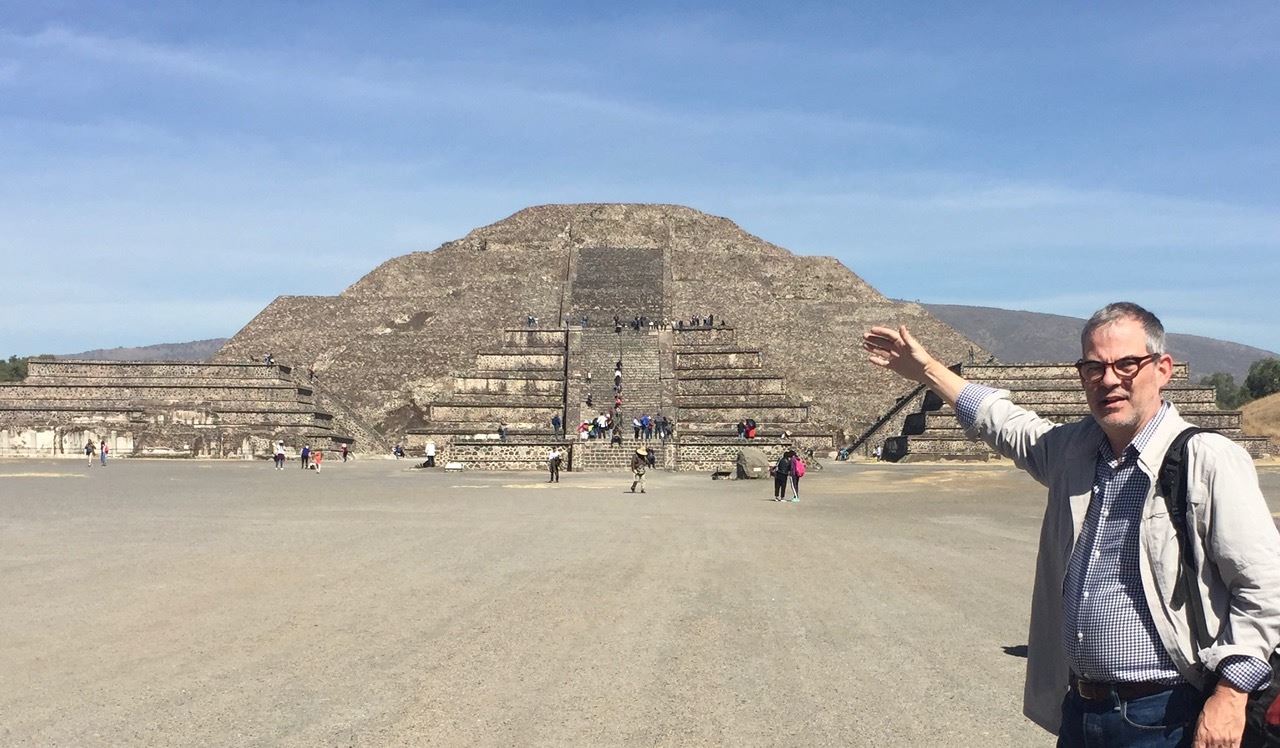 By Jim Buckley, VAF President
By Jim Buckley, VAF President
One of the most exciting chapters in VAF history is opening now as we prepare to launch our VAF/UVa African American fieldwork program funded by the Andrew W. Mellon Foundation. VAF members have always been at the forefront of investigating Black landscapes, particularly in the interpretation of how enslaved Africans and their descendants lived in the American South. It is fitting that we are taking the next step with this new program to further investigate the history of African American life in direct partnership with Black communities.
A committee of VAF members has been working over the past year to develop the program guidelines and select one or more proposed field schools to take part in this initiative. The project is shepherded by Principal Investigator Louis Nelson, Professor of Architectural History at the University of Virginia, who fielded all the initial expressions of interest in the program and helped applicants shape their proposals to fit VAF’s goals. I had a chance to talk to Louis about how the program is coming together recently and asked him about the origins of this effort. He recalled conversations at VAF’s 2019 Annual Conference in Philadelphia about how to keep attracting emerging scholars and professionals: “Many of us were concerned with the need to keep bringing new members into the organization, and to do so we felt we needed to support the exciting changes in the way new scholars and practitioners are approaching fieldwork, but also to respond to the pressing politics of our moment.” Louis says many long-term VAF members were concerned with including scholars from communities who had been underrepresented in vernacular studies.
Past President Kim Hoagland and recent President Claire Dempsey joined Louis to begin conversations with the Andrew A. Mellon Foundation about how philanthropic funding could help organizations like the VAF address the challenges of making our work more inclusive. The Foundation was receptive to the idea of helping VAF’s community of academics and professionals form responsible partnerships with Black communities to ensure that historical narratives reflected the lived experience of those who have experienced racism. Representatives from Mellon and the VAF saw this type of program as an excellent method of fostering more participation in architectural history by Black scholars and preservation professionals.
Once Mellon made the grant, Claire formed a committee to develop guidelines for the program and select the participants. After many months of conversation and strategizing, the team came up with a final plan to invite proposals from teams that combined scholarly and community-oriented skills. Selection criteria included teams’ strength in identification and documentation of sites, in African American history, and in community engagement; the importance of the sites being investigated and whether they were endangered; and the quality of the student experience.
The initiative will support summer field schools at three different locations, with each school starting in 2022, 2023, or 2024. Each site will offer the opportunity to explore aspects of African American history and culture that lend themselves to a vernacular architecture approach but have not yet been fully studied from this perspective. Each school will recruit a diverse group of students both locally and nationwide to be trained in advanced field recording and assessment techniques in sessions of three or four weeks over two years, and each program will involve local communities related to the historical site as partners in the investigation.
Louis says he discussed a wide range of proposals with prospective field schools, from the deep South to the Midwest and urban North, and on subjects that varied from Freedom Communities negotiating new political realities after the Civil War to early twentieth century sites in which African Americans were establishing a Black middle class. “Teams looked at a wide range of regional locations, landscape types, and working methods,” he says. “It’s an amazing array of approaches to African American history.” Each field school will determine the best methods for documenting its historic sites, with techniques that include traditional hand measurement of individual buildings to digital capture strategies for entire landscapes and documents that are likely to include everything from family photo albums to oral histories.
In the end, a dozen teams put together proposals for the field school program, and the committee has been meeting regularly to determine the final selections. I asked Louis what he hopes this fieldwork program might mean for the VAF as an organization, and his answer reflects the immense potential he sees in the proposals submitted. “I would like to see the VAF lead the country in re-seeing and re-“scribing” African American histories at the local level around the country. Given the current moment,” he continued, “nothing could be more important.” Observing that much of the work of architectural history and preservation has traditionally privileged the story of white individuals and communities, Louis hopes that this fieldwork program will “open the door to telling the richness and complexity of African American communities through buildings and landscapes.”
Our program committee should be announcing the selected teams within the next few weeks. I am very excited about this new opportunity to explore African American landscapes – many thanks to the members of the program committee and to the many teams who worked to develop proposals for our Mellon African American Fieldwork Initiative!
The VAF/UVa African American Fieldwork Program is operated by a program committee that includes Louis Nelson, Claire Dempsey, Kim Hoagland, Kwesi Daniels, Carl Lounsbury, Niya Bates, and Jim Buckley.